Search Results
Showing results 121 to 140 of 493
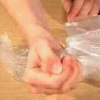
One In The Hand
Source Institutions
In this physics demonstration, learners are challenged to break a raw egg just by squeezing it. Learners will be shocked by their inability to complete the deceivingly simple challenge.

Understanding Albedo
Source Institutions
In this activity related to climate change, learners examine albedo and the ice albedo feedback effect as it relates to snow, ice, and the likely results of reduced snow and ice cover on global temper
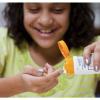
Invisible Sunblock
Source Institutions
In this activity, learners find out why some mineral sunblock rubs in clear. Learners compare nano and non-nano sunblocks and discover how particle size affects visibility.

Motion Madness: Choose the Winner
Source Institutions
This is an online game that explores speed, range and momentum. Learners will pick the winners in a 16-team tournament in 3 events: Tug-o-war, sprint, and marathon.
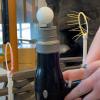
Bernoulli Obstacle Course
Source Institutions
In this activity, learners create their own obstacle course based on Bernoulli's Principle and try to get a floating ball from the start of their course to the finish line.

Mirror Reversal
Source Institutions
Challenge popular misconceptions, learners explore how a mirror actually reflects an image in this activity.

Uncanny Motion
Source Institutions
In this activity, learners explore motion and airflow by setting two aluminum cans on their side and blowing air in-between them.

Thermal Energy Put to Work
Source Institutions
In this activity, learners determine whether thermal energy can be used for work.

Build a Rocket - and a Launch Pad!
Source Institutions
In this activity, learners construct a rocket powered by the pressure generated from an effervescing antacid tablet reacting with water, and build a launch pad for their rocket.
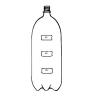
Under Pressure
Source Institutions
In this experiment, learners examine how pressure affects water flow. In small groups, learners work with water and a soda bottle, and then relate their findings to pressure in the deep ocean.

Make a Terrarium
Source Institutions
In this activity, learners make a miniature greenhouse or "terrarium" to explore the greenhouse effect.
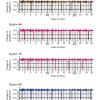
Transit Tracks
Source Institutions
In this space science activity, learners explore transits and the conditions when a transit may be seen.
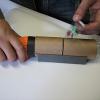
Camera Projector
Source Institutions
In this activity (posted on March 14, 2011), learners follow the steps to construct a camera projector to explore lenses and refraction.
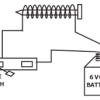
How Do We Convert Electrical Energy into Mechanical Energy?
Source Institutions
In this activity, learners make an electromagnet motor to demonstrate the most basic method of changing electrical energy into mechanical energy.

Marshmallow Catapult
Source Institutions
In this activity, learners explore physics by building a catapult that launches marshmallows with household objects.

The Shadow Knows II
Source Institutions
In this activity, learners will measure the length of a shadow and use the distance from the equator to calculate the circumference of the earth.

Using Solar Energy
Source Institutions
In this activity, learners discover how solar energy can be used to heat water.
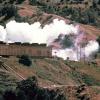
Geothermal Power Plant Model
Source Institutions
In this activity, learners make a model of a power plant that uses steam. Learners use simple materials like foil, a tin can, and a pot of water to model a geothermal power plant.

Aerogel
Source Institutions
This activity/demo introduces learners to aerogel, a glass nanofoam. Learners discover how aerogel is made and how well it insulates as well as learn about aerogel's other unique properties.

